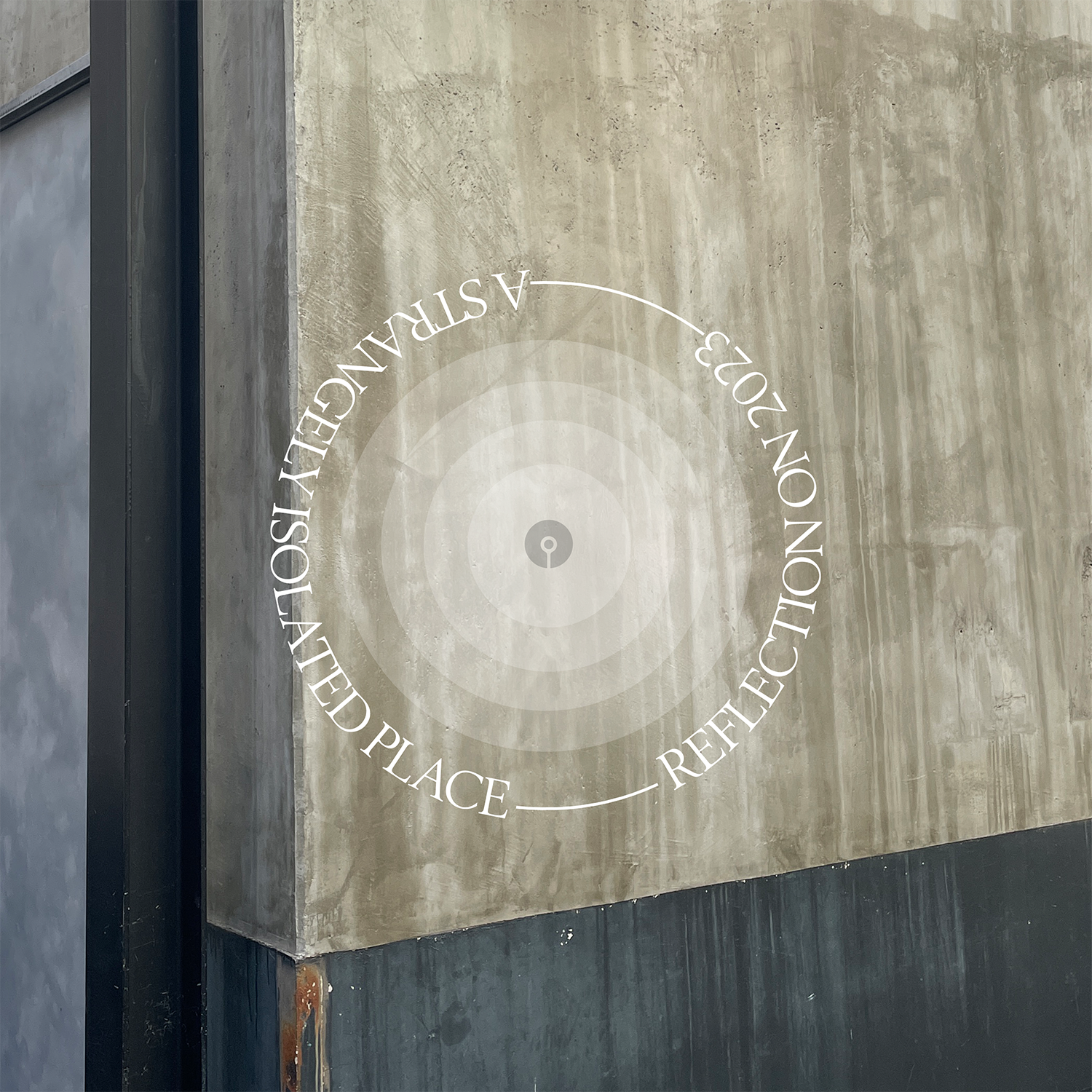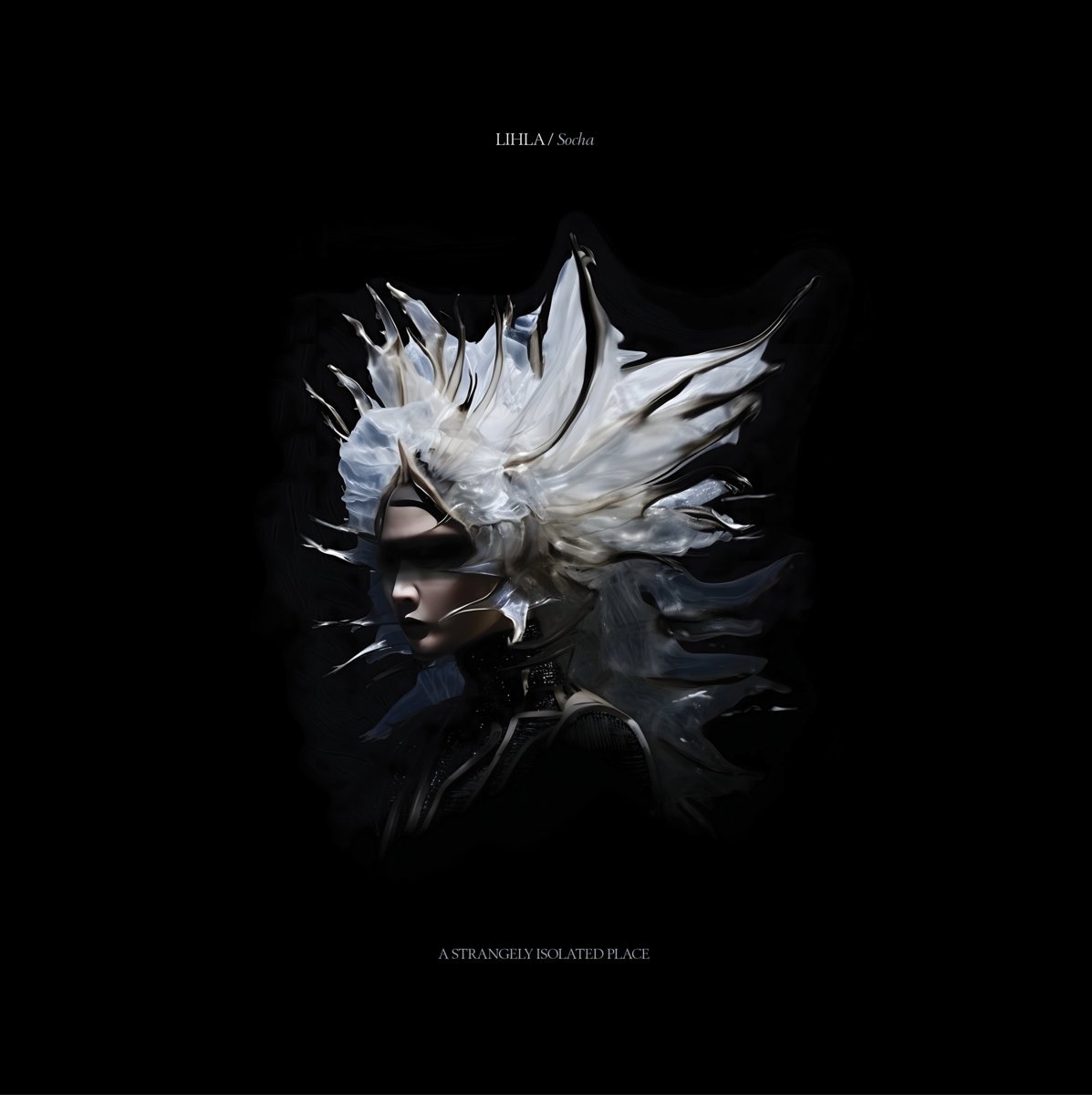After a string of powerful albums with the Denovali label, Eugenio Caria is quickly becoming synonymous with the more epic and intense side of ambient music. Often introducing beats or IDM influences, amongst classical elements and big swells of atmospheric textures, with albums normally built upon strong, vivid concepts, SaffronKeira’s music draws you in for the full, immersive, storytelling experience.
Eugenio’s 2019 album ‘Automatism’, sat with many of my faves of the year, and with the new album ‘In Origine: The Field Of Repentance’ released just a few months ago, it’s clear that SaffronKeira has a lot to give. We sat down with Eugenio to ask a few questions to accompany his suitably powerful isolatedmix.
~
Hi Eugenio, thank you for the isolatedmix and for the brilliant new album.
Hi Ryan! Thanks to you!
Many will undoubtedly know you as a producer in your own right, but some keen eyes may have spotted you on the credits of our recent Blinkar från Norr record. Can you tell us about that experience?
Yes, working with Andrea it was a really good experience, also because here in Sardinia we are very few who produce this kind of music ... when I meet Andrea he showed me his knowledge and passion of “that kind of music” and I see again myself at his age…
Andrea in the beginning, was a student of mine, studying production and some skills started to appear from his mind pretty soon… he’s shy but with a lot of intelligence and musical culture from such a young age. In the few years he has been producing music I have seen him embark on a beautiful musical journey. I think ‘Metaphors For Things’ is a great album! Working in my studio at ‘Suvitas’ was a pleasure with lots of good times and shared comparisons and choices together with him.
What do you try and bring to a new production relationship like this? Can you describe the process with Andrea?
I try to take the production to a higher level - trying to fill some gaps and give a continuous mood/color. But I always respect the philosophy and the will of the artist and look for a compromise through a comparison between us, trying to establish a long-term relationship and trust. It is very difficult to get your hands on work of others without compromising their vision sometimes, as it is still something intimate and personal. From my point of view the additional production is a different example from mastering (for example). Mastering is an art undoubtedly, and in many cases it gives high value to potentially dull work, but a mix for example, can drastically change a piece of music.
Regarding the process with Andrea, we worked on the original material to create new drone layering through the use of echo tapes such as Roland Space echo, Chorus Echo and different vintage outboards. We also used different delay and reverbs trying to better understand the spaces by finding the right balance and also trying to remove - in some cases - that digital touch, trying to make it warmer and more alive. Then we moved on to the arrangement.
Your new album, ‘In Origine: The Field Of Repentence’ incorporates Jazz artist Paolo Fresu - what was the idea behind this collaboration?
I already released an album - ‘Cause and effect’ in 2013 with another Sardinia Trumpeter and I was astonished of the power and soul of this instrument. Paolo Fresu is one of the best trumpet players in the world, and he has worked with other heroes such Jon Hassell, Nils Petter Molvaer and many others. Here in Sardinia he’s an institution and a legend and I’ve know him as an artist since when I was kid… It was one of my goals to make a record with him, so I started some years ago to write draft/landscape sounds thinking about his projection with his great instruments on top of my music, even before I knew he would accept this collaboration.
It may have also came about from the relationship we have with our magic island ‘Sardinia’…
Tell us about that… Sardinia seems to have a lot of great music exports - why do you think that is? How does the music scene differ from the mainland at all?
Yes it's true, the Sardinian scene really has a lot of talented artists who are making their way and exporting their sound all over the world. See for example artists like: Claudio PRC, Dusty Kid, Perry Frank, Paolo Angeli, Paolo Fresu, Stefano Guzzetti (and Blinkar från Norr) just to name a few. All different from each other but each with their own identity which I believe is also transmitted by the power and magic of this land.
I believe that being partially isolated, we withdraw into ourselves by isolating ourselves and allowing ourselves to be contaminated by the scents and climate of this land, sometimes even by the desolation that occurs in the winter months... in the end I think this answer has a connection with ASIP :) a strangely isolated place = that's what Sardinia is!
You’ve been releasing on Denovali since 2012 as your only label home. Can you tell us a about your relationship with them?\
Well, like you said it’s like my home now. They were the first to believe in my art…and I feel super comfortable without any kind of pressure. The first love is never forgotten
Where do you take your inspiration from musically?
I try to find inspiration continuously, traveling, knowing and confronting myself with new and different cultures. This has given me so much in terms of inspiration. Unfortunately for problems that we all know, we cannot travel and I miss this so much. But all of this is also a time for reflection and inspiration; when you are hungry for culture, traveling is like a drug!
It allows me to escape and paint new ideas in my head that I can turn into music, so now that all of this is missing it makes me think a lot…
Other sources of inspiration include the music itself, movies, books, and nature is obviously always in the foreground. But also a man in his actions of the past and present is a primary factor that leads me to be inspired to make music… In fact the concept of my new album ‘In Origine: The Field of Repentance’ came from here.
I see you play live and recently played the notorious Funkhaus in Germany. What elements do you incorporate into your live sets?
Yes, such a great experience, with a great audience; lineup; soundsystem and a magical place… If you have never been there you can’t imagine. The acoustics are fabulous.
Funkhaus is a temple of music, a journey through time. In this specific live set, I incorporated some draft and unfinished material from the new album and I used some trumpet loops that I had from Paolo Fresu’s recordings, processed live with a granular fx + some improvisation on a Eurorack system. Plus some unreleased material - I used a lot of beat, idm, ambient stuff.
Can you tell us about your isolatedmix and the idea behind it?
When I choose the music my main idea it was to have a continuous mood/status/path of thinking that would fit the ASIP world, but without using all music from the ASIP catalog. I hope that I reached this goal and the listener will have a good feeling… I’m huge fan of the isolated mix series!
Listen on Soundcloud, Mixcloud, or the ASIP Podcast.
Tracklist
01. Blinkar från Norr - Motionless
02. Biosphere - Birds Fly by Flapping Their Wings (v2)
03. Becoming Animal - The Sky Is Ever Falling (Abul Mogard Remix)
04. Emra Grid - Trace It Back
05. Lawrence English - Hapless Gatherer
06. Cristian Vogel - Signal Symbol
07. Emra Grid - Fifteen Day Trilogy
08. Rafael Anton Irisarri - Black Pitch
09. Siavash Amini and Saåad - Dragging the Harrow
10. LF58 - Metamorfosi
11. Alina Kalancea - Devil's Lullaby
12. Saffronkeira - Chthonian (w/Mia Zabelka)
SaffronKeira | Bandcamp | Soundcloud | Denovali


























